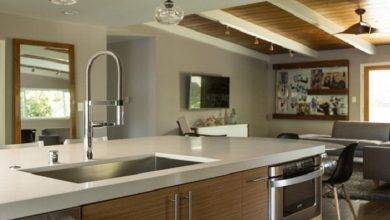
Dealing With Low Water Pressure – Tips for Diagnosing and Resolving Issues
Why has my water pressure suddenly dropped?
If your hot water pressure suddenly drops, there are several potential causes that you should consider. A partially clogged hot water line or water heater filter can do this. Alternatively, the hot water tank or pipes may have started to corrode and need to be replaced. If your hot water pressure has dropped, but the cold water pressure works fine, it could indicate that high mineral content and sediment are building up in your hot water piping system. Finally, a bad hot water valve or pump may be an issue that a skilled plumber can quickly solve. It is essential to call in an experienced professional with knowledge of plumbing systems to help diagnose and resolve this problem.
Does cold weather affect water pressure?
Cold weather stimulates hot water pressure, resulting in a drop. The water heater is located outdoors, usually in a shed or basement, where it is susceptible to environmental conditions. When temperatures start to dip, the hot water system can be impacted, and the colder air around it may make the hot water pressure low. This decrease in hot water pressure can be especially evident if you have a tankless water heater that relies more heavily on ambient temperature to carry out its operations efficiently. While hot weather tends to increase water pressure, cold weather often results in lower hot water pressure, so be sure to keep an eye on it during cold spells and look into ways of fixing any issues that arise as soon as possible.
How do I measure the water pressure in my house?
To measure the water pressure in your house, you will need a water pressure gauge. These are simple devices with a hose that will attach to the spigot and accurately measure the pressure level coming through it. It is important to note that different parts of your home could have drastically different water pressure levels. By measuring each separately, you can get an overall idea of how well-balanced your system is. You can quickly identify problems with the correct gauge and uncover potential solutions for increased efficiency and safety.
Why is my water pressure low in only one bathroom?
A few different possibilities can cause low water pressure in only one bathroom. It could be a simple issue, such as a clogged showerhead, or the problem may be more complex, such as an issue with the home’s plumbing system. You might also leak somewhere in your pipes, draining water from your system and causing diminished pressure. To determine what is causing your low water pressure, you should inspect pipes and faucets, check for leaks and run diagnostics on any shut-off valves. Sometimes it may be necessary to call a professional plumber to diagnose and repair the problem. By working out the cause of your low water pressure, you can enjoy refreshingly strong hot and cold showers again.
Why is the shower water pressure low when the toilet is flushed?
Have you ever stepped into the shower only to notice a decrease in water pressure when you turn on the faucet? Chances are that while someone was flushing the toilet, your shower experienced a drop in water pressure. It is because of higher pressure fluctuations inside the piping system caused by the release of water from the tank for toilet flushing. The sudden increase of available water is typically so great that it reduces the pressure when released into the pipes connected to a separate fixture like a sink or shower head. Plumbing systems have been designed with a communal vent stack which equalizes these imbalances and prevents them from occurring in your showers to address this issue.



